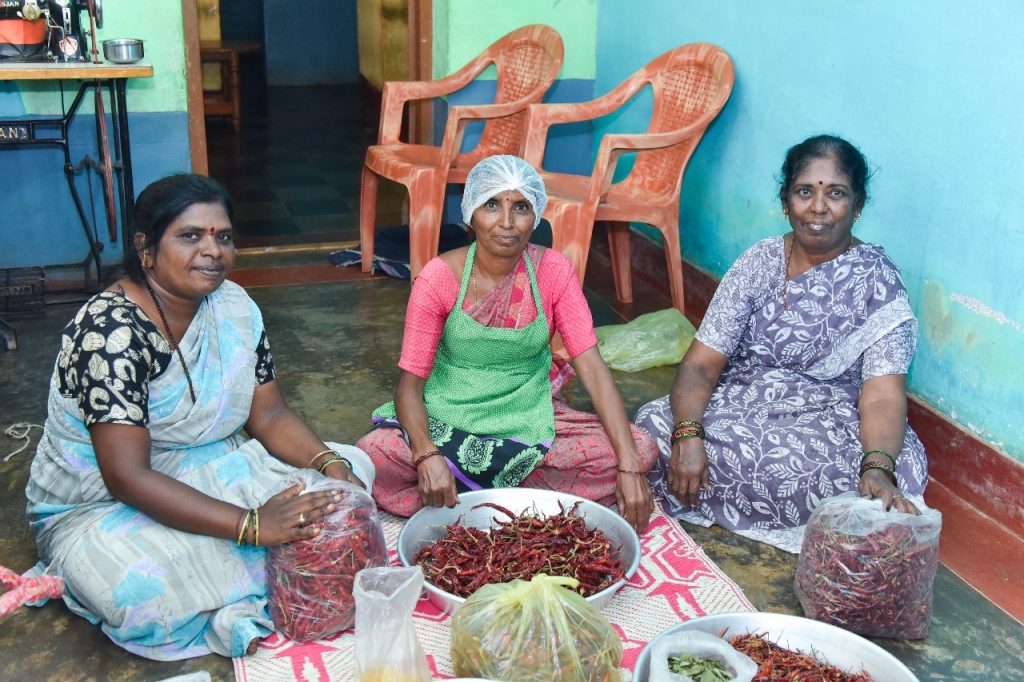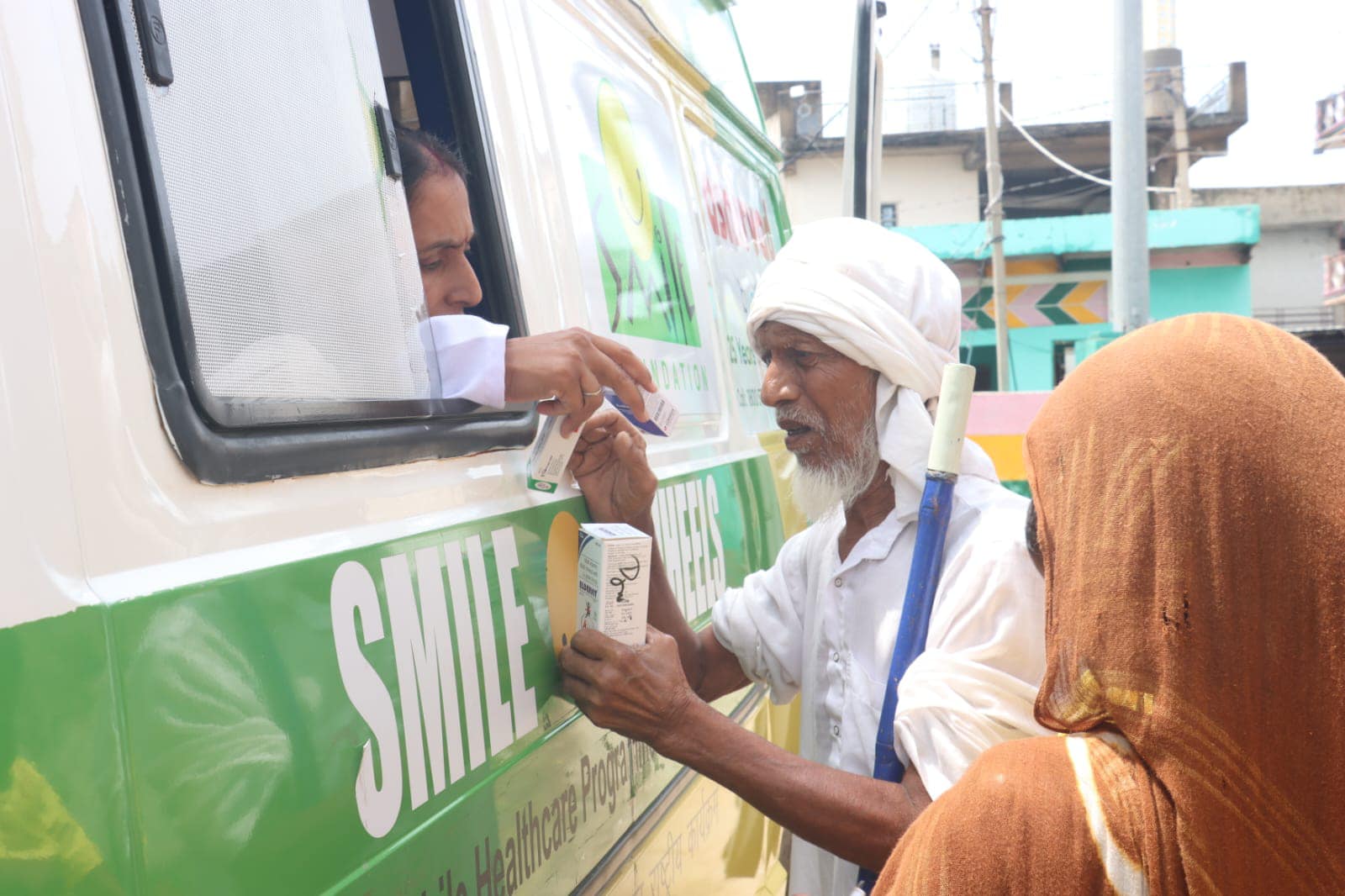In a small village of Maharashtra, two families found themselves embroiled in a bitter conflict over shared water source in the area. This was because both of the families sustained themselves through water-intensive farming which meant that there was never enough resources available for both of them to cultivate their crops without a hassle. This conflict kept growing until it reached the point of turning violent. However, an intervention by the local NGO changed the whole situation. Through its support, both the families learnt about sustainable agricultural practices, diversification of crops, and minimizing the use and wastage of water. At the same time, they also learnt about alternative livelihood opportunities like dairy farming which meant they were not solely dependent on agriculture for sustenance.
This proved to be a life changing intervention for both the families as it significantly reduced their dependency on the shared water resource and, in turn, solved the conflict that had been brewing for years. Not just that, it also provided a sense of security and respectability to them as they could now earn extra money and invest more in their children’s education. This story illustrates a profound truth – respectable livelihoods can transform lives and reduce conflicts over scarce resources.
Link between livelihoods and resource conflicts
Today, the global population has grown to a level where it is putting a lot of stress on the natural resources available to us. In India, this problem is even bigger, as the country has now surpassed China to become the most populous in the world. This also means that many people have to migrate from rural areas to the urban centres in search of work as resource shortages make it more and more difficult for them to survive off the land. This is why, providing sustainable and dignified livelihood opportunities to these people can reduce the conflict that gets created as these rural-urban migrants continue to fight for even more limited resources in the cities.
Resource conflicts often arise when communities compete for access to limited natural resources such as water, arable land, and forests. These conflicts are exacerbated by factors such as population growth, climate change, and economic inequality. Livelihoods are also deeply intertwined with one’s sense of self-respect and dignity. If an individual does not have access to basic resources like water, sanitation, hygienic public spaces, etc., they are likely to get into conflict with others to claim the most they can, often at the expense of others.
This is why it is extremely important that timely interventions are made to provide alternative income sources to people to reduce their reliance on some limited public goods. Globally, we have seen many such examples of interventions that led to incredible turnarounds. Let us look at some examples:
- Rwanda’s coffee cooperatives – After the Rwandan genocide, coffee cooperatives played a crucial role in rebuilding communities and reducing resource conflicts. By providing farmers with a stable income and access to international markets, these cooperatives fostered economic stability and reconciliation.
- Kenya’s water resource management – In Kenya, water was a major reason for conflict in arid regions, but a community-based water management programme brought down these conflicts significantly. Local communities were taught new livelihood techniques like beekeeping, poultry farming, etc., which reduced their dependence on the shared water resources.
Livelihoods and resource conflicts in India
India, with its diverse geography and growing population, faces significant challenges related to resource conflicts. Disputes over water, land, and forests are common, particularly in rural and tribal areas. However, several initiatives have demonstrated the potential of livelihoods to address these conflicts:
- Watershed development programmes – In states like Maharashtra and Andhra Pradesh, watershed development programmes have improved water availability and agricultural productivity. By involving local communities in planning and implementation, these programmes have reduced conflicts over water resources and enhanced livelihoods.
- Forest Rights Act (FRA) – The FRA recognizes the rights of tribal communities to access and manage forest resources. By providing legal recognition and promoting sustainable livelihoods such as agroforestry and non-timber forest product collection, the FRA has reduced tensions between tribal communities and forest authorities.
- MGNREGA – The Mahatma Gandhi National Rural Employment Guarantee Act (MGNREGA) provides rural households with guaranteed employment and income. By reducing economic vulnerability, MGNREGA has alleviated resource-related conflicts and improved social cohesion.
Strategies to promote respectable livelihoods
While a lot has been done in this area, we must remember that the problem of resource shortages is only going to increase in the future. Therefore, we must first of all focus on more sustainable ways of living which reduces our burden on these resources. At the same time, we should encourage the affluent section of our society to adopt these sustainable practices aggressively. With all this, we should also look at promoting respectable livelihoods for everyone. Here are some of the strategies to achieve that:
- Skill development – The first and most important intervention is to provide skilling opportunities to the people who are engaged in livelihoods that are facing the biggest threat due to resource shortage. By providing them vocational training, we can help them to move to more lucrative employment and also increase their income levels. At the same time, it may be a good opportunity for them to live a more respectable life.
- Access to finance – Many individuals living in rural areas, smaller cities, or remote regions of the country can become micro entrepreneurs if they have access to collateral free finance. By providing them money to kickstart their small or micro business, we can ensure that they are not just finding respectable livelihoods for themselves but are also creating jobs for others.
- Community-based approach – Involving local communities in resource management and decision-making can foster cooperation and reduce conflicts. Programmes like Joint Forest Management (JFM) and Participatory Irrigation Management (PIM) empower communities to manage resources sustainably.
Resource shortages can be directly linked to human conflict and also impact the individual’s dignity. Not just that, it can have a severe impact on the livelihoods of people who depend directly on these resources. Therefore, it is essential that we create opportunities for people to move towards alternate, respectable livelihoods in order to reduce conflict. By providing individuals and communities with stable income sources, we can address the root causes of resource dependency and promote social harmony.









